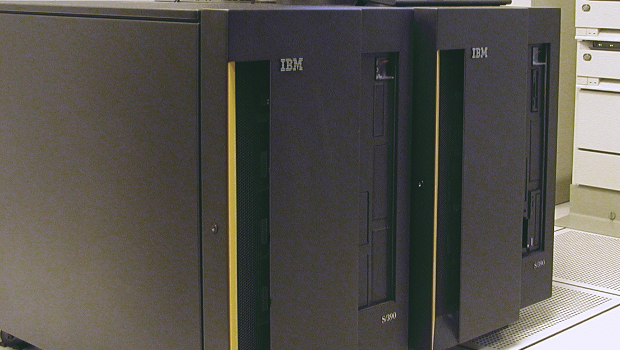Far from being consigned to history, mainframes will be key to running a new generation of ‘Big Data’ applications, a survey of CIOs has revealed.
However, firms face a lack of relevant skills as knowledge of systems is lost with older generations of staff retiring.
The survey of 350 CIOs at large enterprises across the world, conducted by Vanson Bourne on behalf of Compuware, showed that 81% of respondents expect mainframes to continue to evolve to run new and different workloads. In particular, mainframes are suited to applications that need to process large volumes of data, the report stated.
CIOs also believe mainframes will be vital to support the ‘digital’ ambitions of their business. The vast majority (88%) agreed that the mainframe will continue to be a key business asset over the next decade. Furthermore, most see mainframe code as valuable corporate intellectual property (89%), as well as an enabler of innovation (78%).
There are also cost benefits to investing in mainframes, the report claims, with 70% highlighting additional costs required to ensure that newer computing platforms meet the security standard set by mainframes. Yet, perhaps unsurprisingly, the survey found businesses are struggling to find skills to support mainframe hardware and software systems.
Three quarters said distributed application developers have little understanding of mainframes, while seventy percent are concerned a lack of documentation will hinder knowledge transfer and create risk for the organisation.
Four in 10 respondents have not put formal plans in place to address a looming generational shift in mainframe stewardship, with many experienced staff with understanding of older platforms ready to retire.
The report also claims mainframes remain siloed from the rest of most businesses’ IT infrastructure, despite many CIOs highlighting the importance of integrating systems more effectively.
“CIOs clearly need to reprioritise investments in the mainframe in order to maximise the value IT delivers to the business and to effectively mitigate the risk associated with the generational shift in IT staffing,” said Compuware CEO Chris O’Malley.
“Our survey reveals that CIOs are aware of this, but are struggling to respond. Not since Y2K has the mainframe required as much CIO attention and direct involvement. Hope is never a good mainframe strategy.”
Matthew Finnegan, IDG News Service







Subscribers 0
Fans 0
Followers 0
Followers